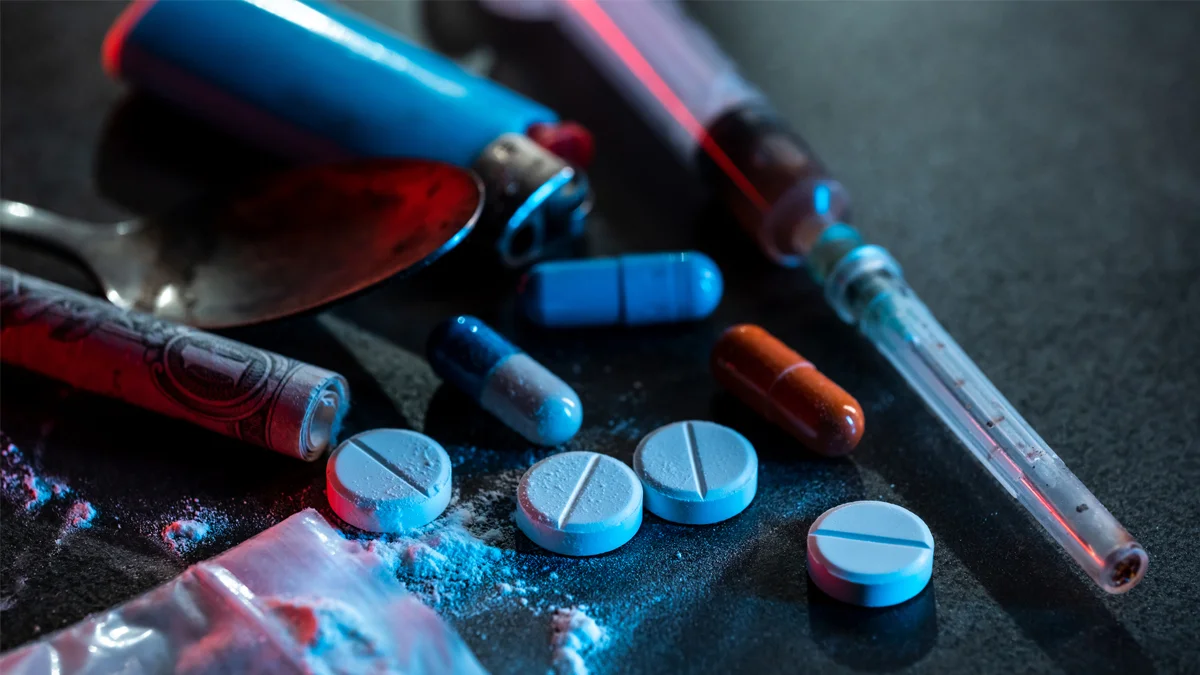
Understanding The Stages Of Addiction
Learn more about addiction, its stages, and discover the best treatment options with The Recovery Team.

Drug addiction hotlines play a vital role in the fight against substance abuse issues by offering an accessible, immediate lifeline to those in need. These hotlines provide confidential access to trained professionals who can offer guidance and information on treatment options.
In addition, drug addiction hotlines connect callers with local resources, including detox centers, rehabilitation programs, and support groups. This practice ensures that individuals receive suitable care tailored to their needs.
Addiction hotlines are equipped to handle severe cases and provide immediate assistance when needed. Here’s what you need to know:
Contact The Recovery Team at (800) 817-1247 for confidential support and guidance.
A drug addiction hotline is a confidential, toll-free service that offers immediate assistance to individuals struggling with substance abuse. Staffed by trained medical professionals, these hotlines provide constant help, including crisis intervention and emotional support.
They provide a safe space for individuals to discuss their struggles without judgment, helping to reduce the stigma associated with drug use. Addiction hotlines facilitate timely intervention by directing callers in the right direction and to an appropriate treatment center.
Some key hotlines include:
Anyone affected by substance use disorder (SUD) can benefit from these drug addiction helplines. This includes not only those directly struggling with addiction but also families and friends of affected people seeking guidance. Hotlines are also beneficial for people who may not yet be ready for formal treatment but need information services.
Hotline services play a crucial role in assisting people and their loved ones in navigating the challenges of recovery and sobriety. Below are the major services provided by them:
Hotlines offer urgent assistance for individuals in crisis, providing immediate support to stabilize the situation. Trained professionals assess the severity of the crisis and take necessary steps to ensure the individual’s safety, offering a vital lifeline during critical moments.
Hotlines provide confidential counseling services to teens and adults struggling with addiction. They offer empathetic listening, emotional support, and practical advice to help individuals cope with their challenges, making them feel understood and less isolated in their journey toward recovery.
Addiction helplines offer valuable information about addiction, treatment options, and recovery strategies. Helpline operators educate callers on different aspects of addiction, helping them understand various conditions better and empowering them with knowledge to make informed decisions.
Hotlines connect individuals with appropriate addiction treatment programs, including detox centers, rehab facilities, and outpatient services. They assess the caller’s needs and recommend suitable options, facilitating access to professional care and increasing the chances of successful recovery.
Substance abuse hotlines are important resources for immediate help, emotional support, information, and treatment referrals, offering hope and assistance to those in need.
Hotlines operate around the clock, ensuring that help is always accessible and catering to individuals needing medical advice. Here’s a look at how these addiction services operate:
Hotlines prioritize privacy, allowing callers to discuss their challenges without revealing personal details. This privacy encourages open communication and ensures that individuals feel safe seeking assistance without concerns about confidentiality gaps.
These hotlines are available 24/7 and are easily accessible via phone, chat, or text, ensuring that help is always within reach, regardless of the individual’s location or circumstances.
You can reach a drug addiction hotline by dialing the phone number provided. These numbers are often toll-free and widely publicized, making it easy for anyone to seek medical help discreetly and promptly.
Addiction hotlines provide immediate and compassionate support to those in need, helping them take the important first step toward recovery.
Hotlines serve as essential pillars of support for individuals navigating through challenging times and seeking recovery. Here’s how they help in the recovery process:
A drug hotline serves as first responders, offering a safe space for individuals to share their concerns. Trained professionals conduct assessments to understand the situation and provide appropriate support and resources tailored to the caller’s needs.
Beyond the initial contact, hotlines offer continuous support, ensuring individuals receive ongoing assistance. Follow-up calls or check-ins help maintain engagement and provide additional guidance as patients experiencing drug withdrawal symptoms progress through their recovery process.
Hotlines bridge individuals to local services and resources critical for sustained recovery. They provide referrals to counselors, doctors, support groups, treatment centers, or other community resources, facilitating a comprehensive support network.
Hotlines serve as lifelines, connecting individuals with the resources necessary for long-term recovery and healing.
Many individuals have questions about what to expect when they make that call. Here are answers to some common concerns about drug addiction hotlines:
When you call a drug addiction hotline, expect to speak with a qualified counselor to listen to your queries without judgment. They’ll offer support, information about substance use treatment options, and guidance on the next steps based on physical and mental health conditions.
You can choose what sensitive information to share. While some details may help them better assist you, you can remain anonymous if you prefer. Hotlines prioritize your privacy and aim to create a safe space for you to discuss your concerns and provide recommendations.
Drug addiction hotlines are equipped to handle severe cases. They have resources to provide immediate assistance and can connect you with treatment centers, crisis intervention, or medical emergency services if necessary.
Remember, whether you need advice, information, or just someone to talk to, these hotlines are there to help you navigate your journey to sobriety.
The drug addiction hotline offers a range of services designed to support individuals struggling with drug abuse. It provides immediate, confidential assistance and emotional support, helping callers navigate their challenges. Specialists can offer information on treatment options, including detox treatment, inpatient and outpatient rehab programs, and support groups.
The hotline also assists in crises, providing guidance on managing withdrawal symptoms and preventing overdose. Additionally, it connects individuals with local resources and services, ensuring they receive ongoing support during the recovery process.
Drug addiction hotlines are usually confidential and anonymous. When you call, your identity and personal information are kept private unless you choose to disclose them. This confidentiality is crucial in encouraging individuals to seek assistance without fear of judgment or legal repercussions.
Trained counselors prioritize your privacy and focus on providing support, guidance, and resources to assist you in overcoming addiction. Whether you’re seeking advice for yourself or a loved one, these hotlines are designed to offer a safe environment for discussing problems related to substance use and finding the help you need.
At The Recovery Team, our goal is to assist you in finding a meaningful, sober life.
Our residential program offers a structured, nurturing environment aimed at aiding you in overcoming addiction. In addition, with an outpatient treatment program, you can get personalized support and flexible treatment options to overcome addiction while maintaining your daily responsibilities.
We also provide cognitive behavioral therapy (CBT) that helps individuals by guiding them to identify and modify negative thought patterns and behaviors. Furthermore, our medication-assisted treatment (MAT) programs are personalized to meet your specific requirements, offering comprehensive support.
Call at (800) 817-1247 to talk to our representatives about your health problem.

Learn more about addiction, its stages, and discover the best treatment options with The Recovery Team.

Learn about the signs of drug addiction and steps to take when you suspect addiction with The Recovery Team.

Discover if drug addiction is a disease and explore different treatment options in this guide from The Recovery Team.